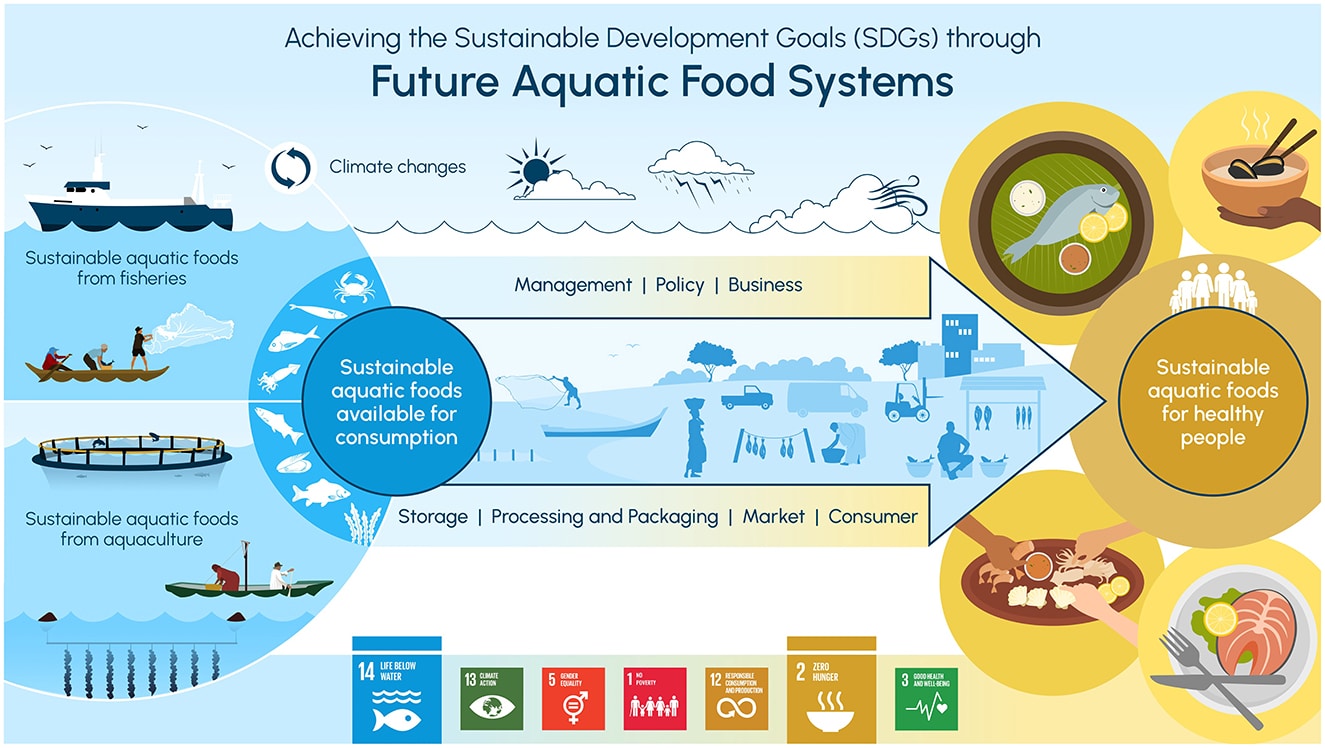Panel Highlights Potential of Aquatic Food Systems

With only six harvest seasons remaining to meet global hunger and ocean sustainability targets, leading scientists and policymakers convened in Nice, France, for the ninth panel discussion of the 2025 UN Ocean Conference. The focus was on the critical role of sustainable aquatic foods in eradicating poverty and achieving food security. The panel emphasized the potential of aquatic food systems to contribute to multiple Sustainable Development Goals (SDGs), particularly those aimed at ending hunger and preserving marine life.
Transformative Potential of Aquatic Foods
During the panel titled “Promoting the role of sustainable food from the ocean for poverty eradication and food security,” experts highlighted the untapped potential of aquatic foods. Jörn Schmidt, Science Director for Sustainable Aquatic Food Systems at Worldfish, urged stakeholders to prioritize aquatic foods as a central element in the fight against poverty and hunger. He pointed out that aquatic foods are often overlooked despite their ability to address multiple challenges, including climate resilience. Schmidt called for action on three fronts: nutrition, production, and equity. He described aquatic foods as “nutritional powerhouses,” especially important for vulnerable populations such as women and young children. He emphasized that even small increases in aquatic food consumption can significantly improve health outcomes during critical early life stages.
Global Nutritional Security and Aquatic Foods
Manuel Barange, Assistant Director General at the Food and Agriculture Organization (FAO), echoed the nutritional benefits of aquatic foods. He noted that global fish production reached 189 million tons in 2023, providing an average of 21 kilograms of aquatic animal protein per person annually. Barange stressed that aquatic foods are essential for combating nutrient deficiencies and promoting global nutritional security. He proposed four practical actions for a “blue transformation” of aquatic foods, including integrating them into food security policies, reducing waste, empowering small-scale fishers, and ensuring sustainable fisheries and aquaculture. He emphasized the need for a holistic approach that links ocean health with food and nutrition security.
The Economic Importance of Tuna Fisheries
Rhea Moss-Christian, Executive Director of the Western and Central Pacific Fisheries Commission, highlighted the economic significance of tuna fisheries, particularly in Pacific island nations. In the Marshall Islands, tuna revenues account for 32% of the national budget, while in the Federated States of Micronesia, tuna represents nearly half of all domestic revenue. Moss-Christian underscored that a healthy and sustainable tuna fishery is crucial for funding essential public services like education and healthcare. She pointed out that canned tuna is among the most consumed seafood globally, with a market value projected at $20.4 billion in 2024. Moss-Christian called for improved management of tuna stocks and equitable access to ensure that both coastal communities and global markets benefit from this vital resource.
Urgent Call for Action on Sustainable Aquatic Food Systems
Shakuntala Haraksingh Thilsted, Director at CGIAR, warned that the world is falling behind on achieving SDG 2 (Zero Hunger) and SDG 14 (Life Below Water). She emphasized the need to connect ocean health with food and nutrition security, noting that aquaculture is now outpacing capture fisheries. Haraksingh Thilsted highlighted the rapid growth of the seaweed industry as a sustainable food source, particularly in South Asia and Africa. She called for significant investments in research and capacity sharing to advance sustainable aquatic food systems. Ciyong Zou, Deputy-Director-General at UNIDO, added that resilient value chains are essential for making aquatic foods safe and accessible. He shared successful case studies from Cambodia and Sudan, emphasizing the importance of empowering women and promoting climate-resilient practices. The panel concluded with a commitment to further dialogue and action to harness the potential of aquatic foods for a sustainable future.
Observer Voice is the one stop site for National, International news, Sports, Editor’s Choice, Art/culture contents, Quotes and much more. We also cover historical contents. Historical contents includes World History, Indian History, and what happened today. The website also covers Entertainment across the India and World.
Follow Us on Twitter, Instagram, Facebook, & LinkedIn

